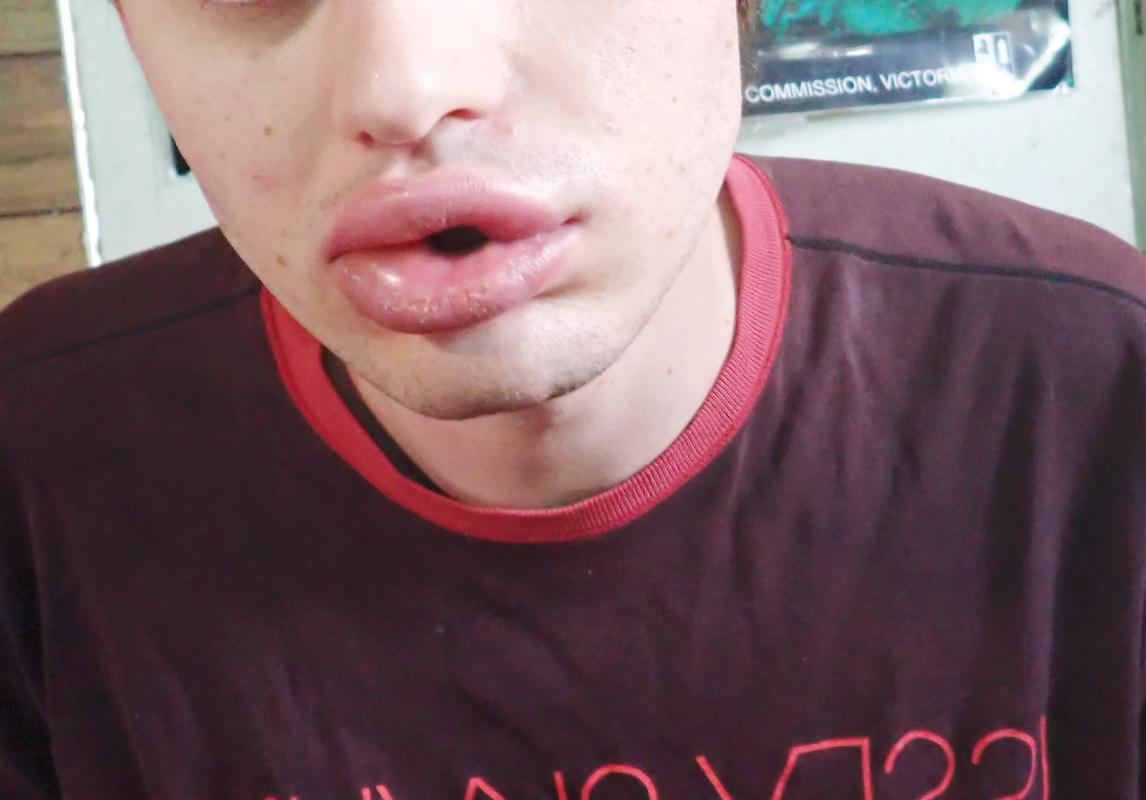A FORMER Mornington Secondary College student has blamed vaping for an extreme allergic reaction that led to medical treatment.
Now in his 20s and a cigarette smoker, he had turned to flavoured, over the counter vapes in an effort to quit, but believes he ended up suffering an allergic reaction from unknown chemicals contained in the product.
His skin began itching and his lips “blew up” to three or four times their size within hours of vaping, he told The News.
“It was pretty scary, I wasn’t sure what was going on but I know that an anaphylactic response can be really dangerous,” he said.
“I went to the doctor and when he confirmed it was most likely the additives in the vape, I threw it straight in the bin.”
The man, who did not want to be named, said he was warning others to stay away for the products unless prescribed by a doctor.
E-cigarettes are prescription only and release a controlled amount of nicotine. But non-nicotine vapes that can be bought over the counter often contain a cocktail of chemicals that have been known to cause allergic reactions in some users. Some imported products still allegedly contain traces of nicotine.
Allergic reactions can be mild, such as itchiness or rashes, or severe, like anaphylactic shock. Common symptoms of an allergy related to vaping are throat irritation, coughing, wheezing and shortness of breath.
In May, two high school students were taken to hospital after suffering a severe reaction to a vaping product in Melbourne.
The boys from Whitefriars College, in Melbourne’s east, fell ill in the morning just hours apart.
In July, six young people were rushed to hospital in New South Wales suffering seizures, vomiting and loss of consciousness after using vapes bought using social media app Snapchat.
Some of the ingredients alleged to have been found in vapes include acrolein (known cancer-causing agents), heavy metals and flavourings linked to lung disease.
Last week the federal government acted by banning imports of disposable vapes from January 2024 to curb the growing popularity of the devices with young people.
The ban will be expanded in March to include all non-therapeutic vapes, including refillable devices, while importers of vapes for medical purposes will need a permit from the Office of Drug control.
Additional legislation next year will apply the same prohibitions to domestic manufacturers.
Health Minister Mark Butler has said that some vapes were deliberately targeting young people, with cute pictures on them and bubblegum flavouring.
Doctors and nurses will still be able to prescribe therapeutic vapes where clinically appropriate, but therapeutic vapes will be restricted from using flavours, have limited nicotine levels and be sold in pharmaceutical packaging under new rules.


